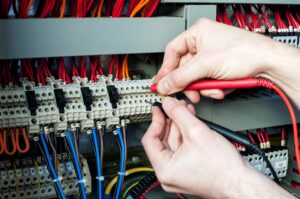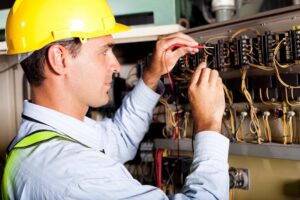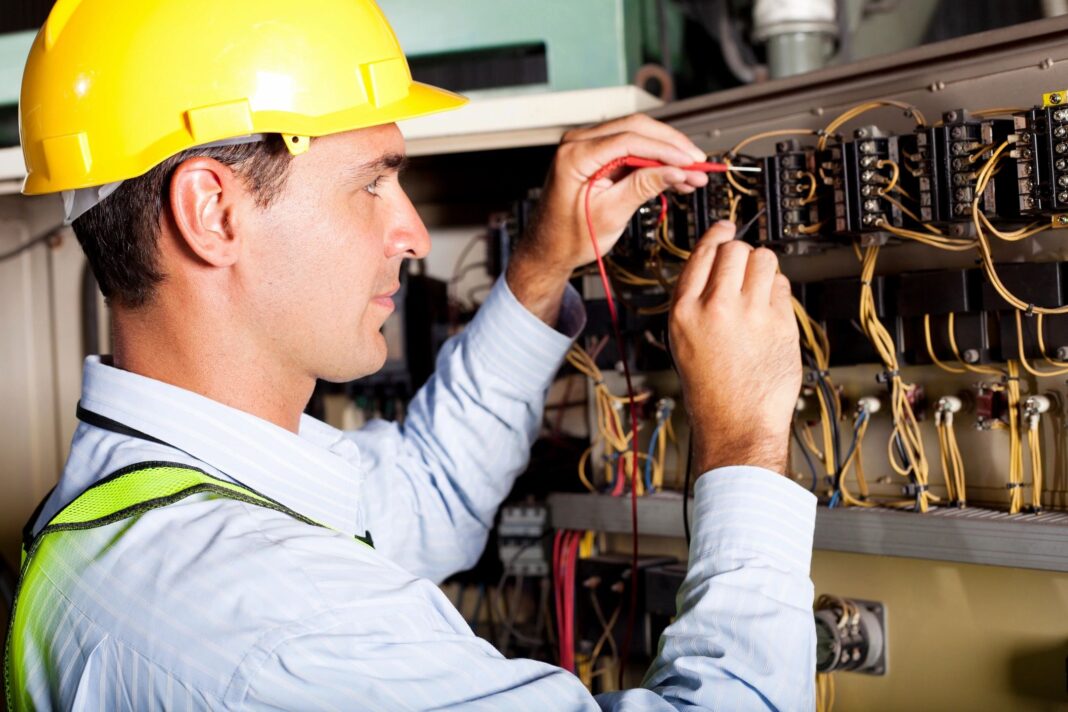The Tampa area boasts a wide range of electrical services, catering to both residential and commercial needs. While these two types of electricians share many similarities, it’s essential to understand their key differences when it comes to selecting the services specific to your needs. This article aims to shed light on the distinctions between commercial and residential electricians in Tampa, helping you make informed decisions for your electrical projects.
Residential electricians primarily focus on single-family homes, offering services such as inspections, rewiring, repairs, and installations tailored to the unique characteristics and requirements of residential properties. On the other hand, commercial electricians tend to work on larger buildings, including businesses and corporations, where they oversee electrical systems on a larger scale and often face distinct challenges with regards to codes, materials, and electrical loads.
Emphasizing these differences can help you identify the right electrical expert for your specific project in the Tampa area. By choosing the appropriate electrician for your needs, you can ensure a safer, more efficient, and satisfactory completion of your electrical tasks, whether they involve a cozy home or a bustling office building.
 Understanding the Field: Commercial and Residential Electricians
Understanding the Field: Commercial and Residential Electricians
In the world of electricians, there are two primary types: commercial and residential. Both professionals share a foundation in electrical knowledge, but their work environments and job responsibilities have some key differences that set them apart. This section will explore the distinctions between these two fields, focusing on Tampa electricians as an example.
Commercial electricians specialize in providing electrical services for businesses, corporations, and industrial facilities. These professionals are responsible for installing, repairing, and maintaining electrical systems in large buildings and commercial spaces. They often work on projects such as new constructions, renovations, and upgrades to existing infrastructures. Commercial electricians require specialized tools, equipment, and training to handle the complexities of commercial projects. Furthermore, since commercial buildings must adhere to strict building codes and safety regulations, these electricians must stay up-to-date on the latest requirements and best practices to ensure compliance.
Residential electricians, on the other hand, work mostly with single-family homes and smaller residential properties. They focus on electrical installations, repairs, and maintenance for households. Their projects include wiring new homes, updating existing electrical systems, and adding features such as power outlets and lighting fixtures. Residential electricians also follow strict safety codes and regulations, but typically deal with less complex systems and components when compared to their commercial counterparts.
There are a few main differences between commercial and residential electricians in Tampa. One of the most noticeable differences lies in the scale and complexity of their respective projects. Commercial electricians work with higher voltage systems, which require advanced tools and equipment to safely manage. Additionally, commercial electrical systems often need more intricate wiring setups and larger electrical loads, resulting from numerous electrical devices operating simultaneously.
Another distinction between these two professions is the level of specialization required. Commercial electricians typically have a deeper understanding of specific industry standards and specialized aspects of electrical systems, such as energy management and automation. Residential electricians, in contrast, may focus more on the general aspects of household electrical systems and have a broader skill set better suited for residential projects.
In Tampa, professional electricians need to obtain the appropriate licenses and certifications to operate in their chosen field. Regardless of whether they are commercial or residential electricians, they share a responsibility to prioritize safety, efficiency, and quality in their work to ensure the best possible outcomes for their clients.
Core Duties of Commercial Electricians
 Handling High Voltage
Handling High Voltage
Commercial electricians in Tampa are well-versed in handling high voltage electrical systems found in commercial buildings. These electricians have the skills and expertise to work with transformers, switchgears, and power distribution systems. They ensure that the complex electrical systems are functioning efficiently in settings such as office buildings, retail stores, and hospitals. Their knowledge enables them to diagnose and resolve high-voltage electrical issues, ensuring the safety of the people working in those environments.
Fire Alarm Installation
Another crucial responsibility of commercial electricians is to design and install fire alarm systems in commercial buildings. These professionals work with architects, builders, and other stakeholders to ensure that the fire alarm systems are implemented correctly and meet the necessary safety regulations. This may include installing wiring, sensors, panels, and backup power systems to guarantee the proper functioning of a fire alarm system during an emergency. A reliable fire alarm system is a critical safety measure to protect the lives of those working in large commercial areas.
Security System Infrastructure
Commercial electricians are also responsible for setting up the security system infrastructure in commercial buildings. These systems often include security cameras, access control systems, alarm systems, and other surveillance equipment. Electricians must have the technical know-how to install, configure, and troubleshoot these systems, ensuring the building’s security and safety. They also collaborate with other security experts to combine their skills and knowledge for the most effective security solutions. In summary, Tampa commercial electricians play an essential role in maintaining the safety and smooth operations of commercial facilities in Tampa.
Key Responsibilities of Residential Electricians
Residential electricians hold an important role in ensuring the safety and functionality of electrical systems in homes. They undergo specialized training and obtain licenses to work in residential settings. Below, we discuss their key responsibilities, focusing on household wiring, circuit breaker maintenance, and small appliance installation.
Household Wiring
Residential electricians are responsible for installing, maintaining, and repairing household wiring systems. They ensure that electrical wires are properly connected and in compliance with local codes and regulations. This involves installing electrical wiring for new constructions, diagnosing and repairing issues in existing wiring, and upgrading outdated systems to meet current and future demands. Proper wiring ensures the safety and efficiency of a home’s electrical system, preventing potential hazards like electrical fires and power outages.
Circuit Breaker Maintenance 
A crucial component of a home’s electrical system is the circuit breaker, which ensures the safety of occupants and protects the electrical components from damage due to overload or short circuits. Residential electricians perform regular maintenance checks on circuit breakers to ensure they are functioning correctly and safely. This includes inspecting for wear and tear, tightening connections, and replacing damaged parts. They may also recommend upgrading the circuit breaker panel if it cannot support the electrical needs of the household.
Small Appliance Installation
Residential electricians are skilled in the installation of small appliances, such as ceiling fans, light fixtures, and smoke detectors. These installations require expert knowledge of electrical wiring and adherence to safety standards to ensure proper functionality and minimal risk of electrical mishaps. Electricians may also provide guidance on the appropriate placement and configuration of these appliances for maximum efficiency and optimal performance.
Essential Skills: Commercial vs Residential
Technical Knowledge
Commercial and residential electricians in Tampa may share some foundational skills, but their respective technical knowledge varies significantly. Residential electricians focus on single-family homes and utilize skills such as electrical system installation, maintenance, troubleshooting, and repair of these systems within household environments.
On the other hand, commercial electricians work on larger buildings like businesses, industrial facilities, and offices. They require additional education to understand complex electrical systems, blueprint reading, and electrical regulations. They install and maintain larger-scale or more advanced electrical systems such as three-phase power systems and specialized lighting.
Training and Certifications
Residential and commercial electricians in Tampa both require a certain level of training and certification to ensure that they have the necessary skills and knowledge to perform their duties. However, there are some key differences in the training and certification requirements for each type of electrician.
Residential electricians typically complete formal training through an apprenticeship program or technical school. These programs generally provide a combination of classroom instruction and hands-on learning, covering topics such as safety procedures, blueprint reading, electrical theory, and local electrical codes. After completing the required hours of training, residential electricians must pass a licensing exam to become a certified electrician in Tampa.
Commercial electricians, on the other hand, often require more specialized training to handle the unique challenges and demands of commercial electrical work. In addition to the standard training required for a residential electrician, commercial electricians may need to complete additional courses in areas such as energy management systems, high-voltage wiring, and advanced control systems. Commercial electricians also need to pass a separate licensing examination, which covers a broader range of topics specific to commercial electrical work.
Both types of electricians are required to participate in ongoing training and education throughout their careers. This ensures that they stay up-to-date with the latest advancements in the electrical field and maintain their skills and knowledge. Some common forms of continuing education for electricians in Tampa include attending workshops, seminars, and specialized training courses.
Safety Protocols and Standards
When comparing commercial and residential electricians in Tampa, one significant difference lies in the safety protocols and standards they follow. Commercial electricians must adhere to even more stringent regulations due to the complexity and higher power requirements of commercial projects.
One of the critical standards commercial electricians must meet is complying with electrical equipment safety. This aspect includes proper installation, maintenance, and usage of all electrical devices. Additionally, commercial electricians are required to follow personal safety compliance rules. This includes wearing proper protective gear and using safety equipment while performing electrical tasks. Moreover, commercial electric contractors typically carry higher levels of insurance to protect themselves and their clients in case of accidents or property damage.
On the other hand, residential electricians in Tampa focus primarily on wiring systems and components for residential buildings. Their scope of work mainly revolves around single and multi family homes. While they still follow safety protocols, their requirements and standards may not be as rigorous as those for commercial electricians.
Both commercial and residential electricians must adhere to the Occupational Safety and Health Administration (OSHA) safety standards. These standards apply to all electrical work conducted in the United States and set a minimum level of safety that must be followed regardless of the type of project. Furthermore, electricians working in Tampa must comply with local codes and regulations, which can often vary from city to city.
In conclusion, when seeking an electrician for a specific project in Tampa, it is crucial to consider whether they specialize in residential or commercial work. Understanding the different safety protocols and standards each type must follow can help ensure the right professional is chosen for the job. And ultimately, this will lead to safer and more efficient electrical installations and maintenance.










